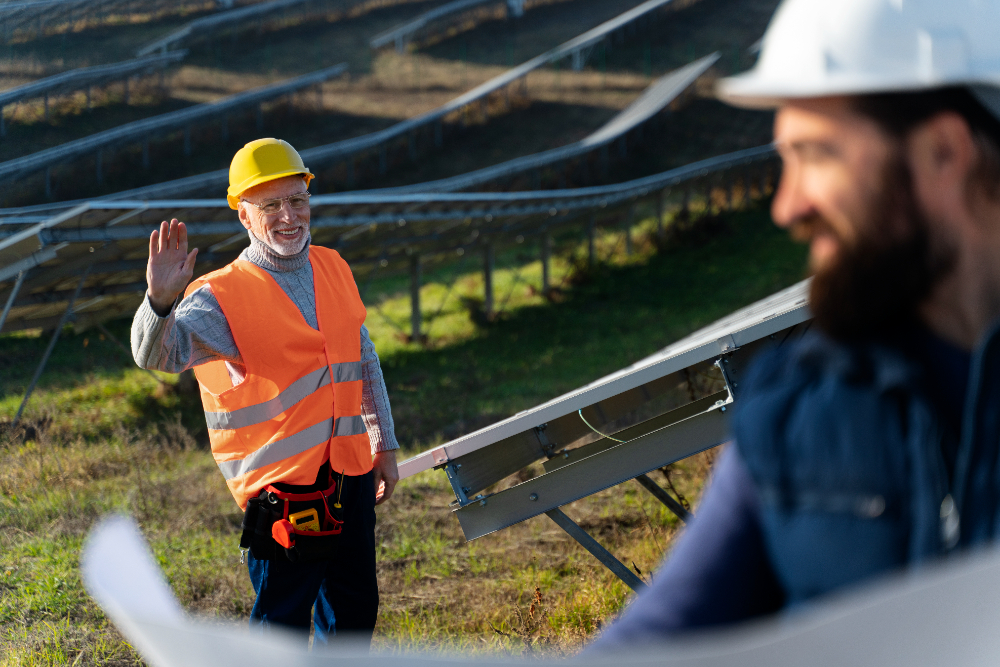Italy’s Renewable Market: Trends & Talent
With a 25% increase in renewable energy usage in the first half of 2024 and a 6% reduction in emissions, Italy’s renewable market is experiencing rapid growth in trends and talent demand. This shift toward sustainability, driven by ambitious government policies and corporate innovation, offers numerous opportunities—and challenges—for attracting and retaining top talent. Effective recruitment strategies are essential to meet the sector’s evolving needs and support Italy’s green transformation.
Emerging Opportunities in Italy’s Renewable Energy Sector
Italy’s renewable energy landscape is thriving, thanks to substantial investments and regulatory support. The country is on track to achieve its ambitious target of 80 GW of renewable energy capacity by 2030. This growth is not only a milestone for environmental progress but also a driver of job creation across sectors like solar, wind, and hydroelectric power.
For example:
- Renewable energy engineers are essential to designing innovative systems.
- Project managers ensure these systems are implemented effectively.
- Policy analysts work to refine Italy’s energy strategies for sustainable development.
As the renewable energy sector expands, so do the opportunities for professionals eager to contribute to this transformation.
Looking for the latest insights and trends in Italy’s renewable energy market? Sign up for our monthly newsletter to stay informed about the key developments shaping this dynamic industry.
In-Demand Profiles in the Renewable Energy Industry
The transition toward renewable energy in Italy has significantly increased the demand for specialized professionals who can drive innovation and development within the sector. Among the most sought-after profiles are Renewable Energy Engineers, who design and implement systems that integrate solar, wind, and hydroelectric solutions, acting as the architects of the energy revolution. Equally crucial are Energy Policy Analysts, who shape the country’s regulatory landscape to promote the adoption of renewable energy sources. Environmental Consultants play a pivotal role by ensuring projects comply with environmental regulations and by assessing their ecological impact. Additionally, Project Managers are essential for guiding renewable energy projects from concept to completion, ensuring they meet both technical and regulatory standards. This demand highlights the complexity of the industry and the level of expertise required to push Italy’s renewable energy goals forward.
The Italian government has been instrumental in supporting the growth of renewable energy through a series of strategic initiatives. The Decreto FER X, aimed at achieving decarbonization by 2030, provides financial incentives and streamlines administrative processes to boost investment in renewable projects. Another crucial measure is the Mecanismo de Adquisición de Capacidad de Almacenamiento (MACSE), which enhances energy storage systems, facilitating the integration of renewable sources into the national grid. Additionally, regional mandates require local governments to identify suitable zones for renewable projects, aligning with the national goal of reaching 80 GW of renewable energy capacity by 2030. These policies solidify Italy’s position as a competitive player in the global renewable market, attracting both talent and investment.

Italian companies have also emerged as global leaders in renewable energy, setting benchmarks for innovation and adaptability. Enel Green Power, for instance, has led numerous solar and wind energy projects, showcasing Italy’s potential on the international stage. Similarly, ERG, which transitioned from oil to wind energy, has become a key player in Europe’s renewable sector. Falck Renewables has established itself as a pioneer in designing and managing renewable energy plants, demonstrating how strategic vision and flexibility can drive success in a competitive market. These success stories reflect Italy’s ability to leverage innovation for sustained growth in the renewable sector.
However, attracting top-tier professionals is only part of the equation; retaining them is equally critical. To address this, Italian companies are implementing forward-thinking strategies to keep their workforce engaged and motivated. Continuous professional development programs ensure that employees stay updated on the latest technologies and industry trends. Competitive compensation packages reflect the high level of specialization required, helping to attract and retain top talent. Clear career advancement opportunities provide employees with growth pathways that keep them motivated and committed. Additionally, fostering inclusive work environments that promote diversity and a healthy work-life balance enhances job satisfaction and creates a sense of belonging. By integrating these strategies, companies not only secure a skilled workforce but also position themselves as employers of choice in an increasingly competitive industry.

Italy’s commitment to renewable energy, backed by government initiatives and corporate innovation, underscores the nation’s determination to lead the energy transition. This combination of strategic recruitment, talent retention, and forward-looking policies ensures a bright future for Italy’s renewable energy sector.
Italy’s renewable energy boom is more than just a step toward sustainability—it’s a movement transforming industries, creating opportunities, and redefining the future of work. The combination of government support, corporate innovation, and strategic talent management positions Italy as a leader in renewable energy.
By addressing challenges in recruitment and retention, Italian companies can secure the workforce needed to drive their ambitious goals. For professionals and organizations alike, this is the time to act, adapt, and thrive in an industry that is shaping the future of the planet.








